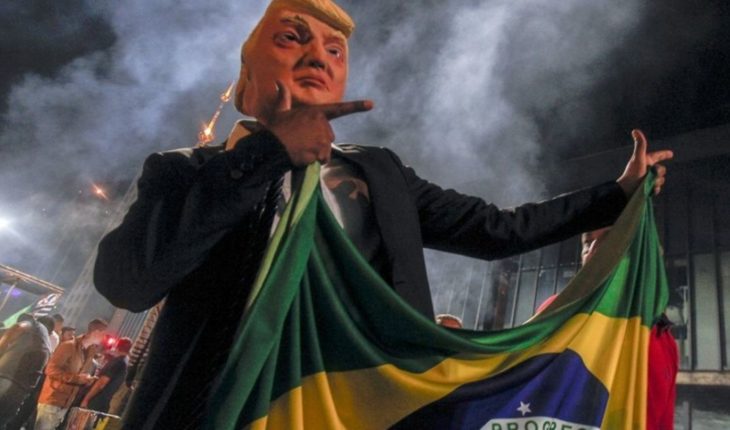In 1992 Fernando Estenssoro, theorist of international relations, raised one of those needs that seems difficult to understand: admitting that the environmental crisis as a variable of political conflict meant recognizing that the management of the non-innocent or ideologically neutral. The idea suggested that the sustained rates of deforestation in the most biobiodiversity forest on the planet illustrated once again the urgency of seeking among all the actors involved a democratic debate facilitated by integration where accepting this reality it was necessary not only rhetorically but real. Because it is clear that the law of Management of the Public Jungle promoted by Lula would have been a good starting point, that the rule of Prior Consultation in Peru would be a great tool if they decided to respect it or even that the incorporations of The Good Living or Living Well in the Constitutions of Ecuador and Bolivia, respectively, they were palpable advances.
All good ideas, but the problem, as well as the solution, has to be multidimensional, global. That is why the debate in recent decades has always been mediated by the United Nations and the European Union, from where, under erratic solutions (Tokyo Protocol) and re-adapted (Paris Climate Agreement), climate change was understood to be the more paradigmatic example on the limits of nationalism. This need is now a problem, because if the symptoms are Jair Bolsonaro or Donald Trump, the disease is “right-wing populisms.” To read more about this you can click here, but the important thing to take into account is the global situation and the direct effects of this reality on policies on the care of the environment. That in the face of a scenario traditionally marked by globalization and its goodness, the world gradually sees the emergence and governing spaces where the emanating values hold a discourse contrary to the fullness of global commitments.
Trump’s traumatic triumph, Brexit, the rise of the far right in part of the European Union and Bolsonaro’s victory in Brazil are some of the points that question the stability of the strongest Western democracies and decanted a sustained rejection of the global order built. Some examples: Trump sees climate change as a “Chinese lie,” withdrew the United States from the Paris Agreement, and plans a bill that seeks to increase carbon emissions.
Bolsonaro, among other points, gave the Ministry of Agriculture the function of identifying, delimiting and creating new indigenous reserves, a task developed until then by the National Indian Foundation (Funai).
Nigel Farage, leader of Britain’s Brexit party, called climate change a “scam.”
Alternatives for Germany (a space that garnered more than 4 million votes in the last elections to the European Parliament) proposes from its platform that “carbon dioxide is not a pollutant”.
The list goes on and you can see it here, but the important thing is to understand that while the cases mentioned are not homogeneous, there is a common denominator and it is the reason for this note: again, to understand that the sustained electoral return of these programs is no longer only presented as a danger towards the countries that elect them, but they are a tacit threat to the slow progress against climate change. The truth is that on the other side of the sidewalk, although regional trials as that of an alternative beyond the essentially commercial as was (or is) the case of Unasur or the policies from Washington sponsored by Obama were not enough , marked the first steps of a path today in risk of being erased.
I repeat, they were not utopian experiences, but they were examples of possible solutions, not potential problems. Other cases: Between 2003 and 2011, without reaching the full objective but some progress, Lula’s Brazil considered reducing Amazon deforestation rates by 80%
The European Union, for the year 2005, marked the rigour of the Bloc’s Emissions Trading System
Obama pushed for the negotiation of the Paris Climate Agreement and implemented the Clean Energy Plan to reduce emissions from U.S. power plants.
The crack is natural, but the important thing is not this but we are at a tipping point: According to the last UN High-Level Meeting on Climate and Sustainable Development, it is understood that we have 11 years to prevent the “irreversible damage” of climate change. It will then be the challenge still to be modified or reordered economic and productive priorities in order to develop a model where respect and awareness of the importance of the environment transcend economic interests until now transcend economic interests exclusively prioritized.





